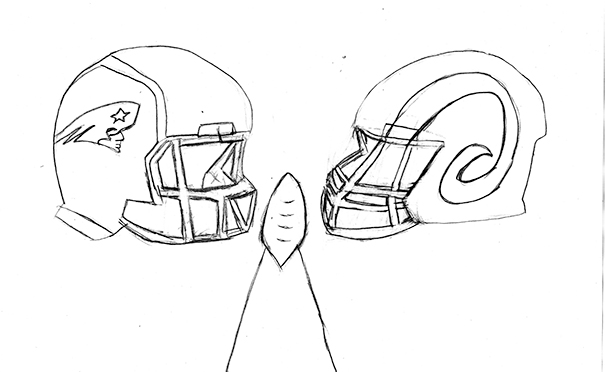The other day I was sitting with a friend who said something rather uninteresting. Although he did not intend it, what he said seriously made me consider his thinking. It was rather incredible. It should be noted at this point that he was watching baseball.
He sat there, watching intently as if he was participating. His mood directly corresponded to the images he saw and the action within the game.
He then said: “Man, I hate Yankees fans. I’m glad I’m a Red Sox fan.” I was dumbfounded. He said nothing about himself beyond a preference; he was not even playing in the game.
It was limiting in the extreme, yet he relished this preference for what it was worth. Unfortunately his case is an all too familiar case, and demonstrates a familiar problem with American and western thinking.
We come to identify with the identifiable. A sports fan becomes a comfortable label and necessarily defines us. We do things like this all the time, largely without a modicum of criticism or concern. We allow ourselves to be spectators and exploit every chance we see to engage as spectators.
This is a form of social control. When we become comfortable as spectators, or rather, identity spectators, we lose much.
In this type of thinking we are helpless against all that the modern world presents us with. Comfort equals rigidity in this system, what comes to represent action is in fact inaction.
This translates itself into the social, political, and economic reality in the world around us. Brand loyalty, sport loyalty, and ideological loyalty, all rob us of our humanity.
They rob us of our greatest strengths and force us into slaves who wear their shackles willingly. It is from this point that all concessions are made about the world around us.
This is the space where we admit a two party system is “the way it is”, instead of the naked date rape it actually is.
This is where we proclaim our hatred of the anonymous institutional power that defines our world (Wal-Mart), only to end with praise of that power (“It sure is convenient!”).
The social and political problems evident in our society today are symptoms of this disease. Drug addiction, violence, and prostitution become the means by which we try to fight the system we find ourselves in.
They represent “escapes”, the uncomfortable comfortable. They are attempts to throw off the shackles that imprison us. However they come as close to unlocking those shackles as handgun legislation does to preventing handgun related murder.
Perhaps there is no way to affect and influence those social, political, and economic structures that govern our world. With so many actively embracing the systems around them, this is necessarily the case.
The only recourse we have at our disposal is to identify and confront these systemic forms, because every time we do not, we are complicit in the acceptance of injustice that characterizes our world.
We should fight that which alienates and robs us. I suspect that very few of us do. We need not pay homage to sporting events and their commodities (athletes) as a way of defining ourselves and our control.
They are significantly hollow outlets with little to offer and much to infect. We must begin to criticize the structures and forms of our world that would place us at such a disadvantage, instead of criticizing the effects of those structures.
Rallying around sporting events requires much the same thinking as rallying around political figures. It requires the same blind loyalty and illusion of involvement characteristic of nationalism and consequently patriotism (as patriotism is the symptom of the nationalism disease).
All of these mindsets lead to the worst of what we have to offer and perpetuate the fundamental fraud of American and European life. So the next time you hear someone proclaim their love of that which in no way includes them nor offers appreciable control/representation, like voting, ask yourself what they are actually saying and thinking.
Is it that they are in control, or are they in love with the illusion of control?














